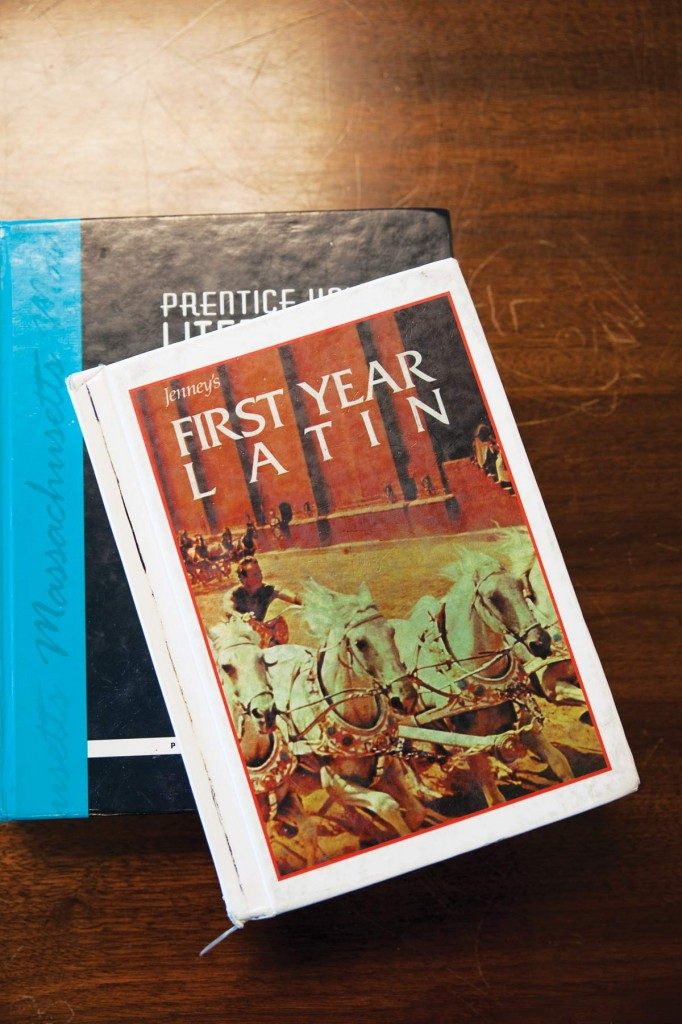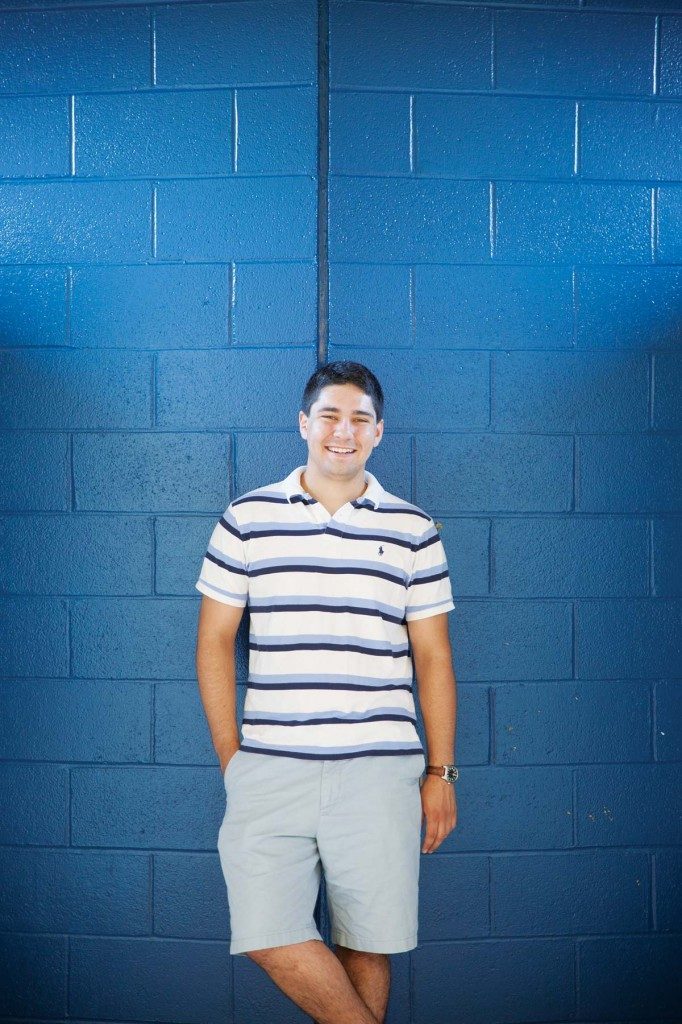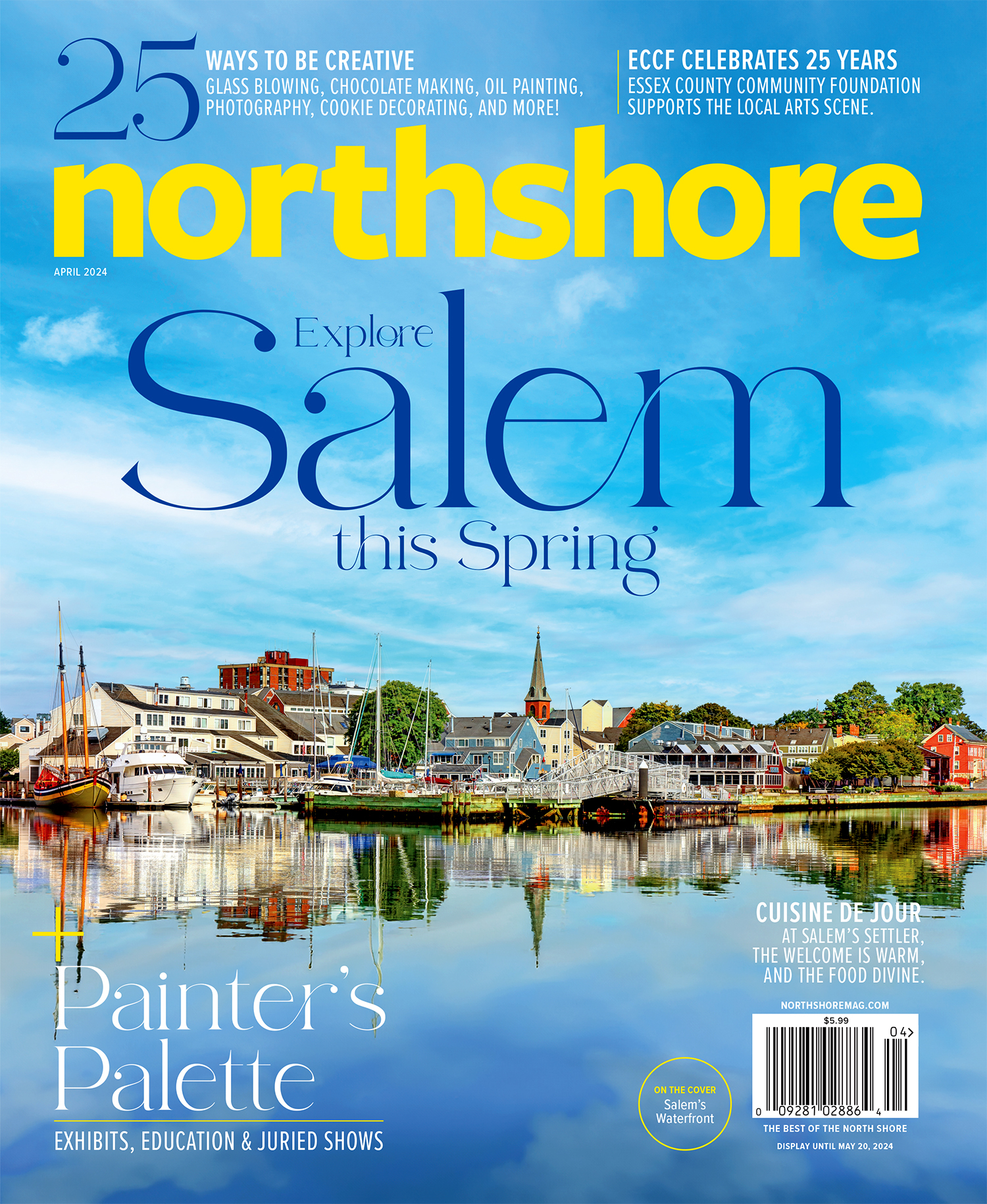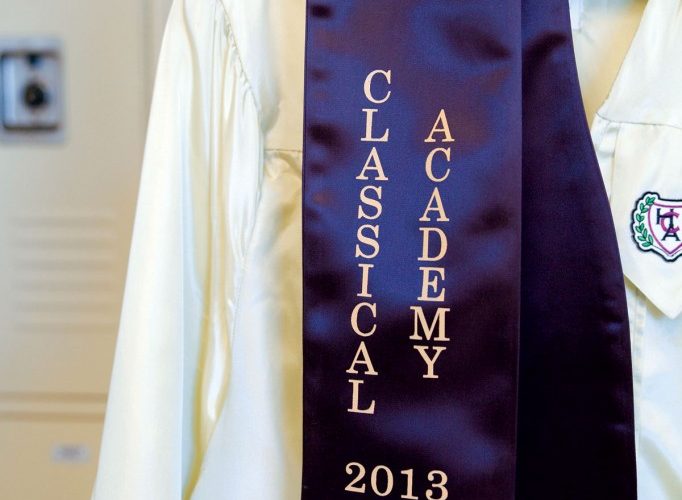Haverhill’s Classical Academy offers a curriculum that encourages the development of critical, creative, and forward-thinking young minds.
Love those vocab quizzes,” says Haverhill High School senior Juan Lopez. His classmates, and even his teachers, erupt into laughter, but he’s not joking. In fact, he sounds almost wistful. True, these aren’t words that typically come out of a teenager’s mouth, but then again, Lopez and his classmates aren’t really what you’d call typical teenagers. They’re academically engaged to a point that’s astonishing, discussing everything from the moral implications of factory farming to how mathematics apply to the principles of learning Latin. These teenagers are enrolled at Haverhill High School’s Classical Academy, a kind of “private school” within a school where the curriculum focuses on the classics, humanities, and liberal arts.
As school districts across the country cut arts education and programming, Haverhill High School is proudly going against the grain with its Classical Academy, which is based on the curricula of Boston Latin School and Lowell High School’s Latin Lyceum. Students must take an entrance exam to be accepted into the highly selective and rigorous program, which offers the structure, curriculum, and support of some of the area’s best private schools without the private school price tag.
“The private schools were pulling a lot of our top students away,” says Deborah Sasso-Flanagan, dean of the Classical Academy and a teacher who helped to found the program in 2007, along with teacher Paul White and several other Haverhill High School faculty members.
In order to apply for the four-year program, eighth graders must take an entrance exam, as well as submit two years of middle school transcripts, teacher recommendations, and attendance and conduct records. Once students have been accepted into the Classical Academy, they start out on a four-year prescribed curriculum of honors and advanced placement classes, as well as several required courses, including at least three years of Latin and creative writing or public speaking.
The program also requires research- and project-based seminar courses that take an interdisciplinary approach to learning. For example, in the freshman-level Classical Connections course, students research Greco-Roman architecture after reading Julius Caesar and studying Latin in other classes. The sophomore-level Research Seminar is based on Harvard’s renowned “Justice” course and aims to teach students to think critically and philosophize about moral issues such as Roe v. Wade, utilitarianism, and child labor. The Senior Seminar requires students to conduct an 80-hour research project, which they have to present to a panel of judges.
“It’s completely changed how I look at things,” says Tess Frieswick, president of the senior class of 2014. “We’ve become very good at expressing our ideas and thoughts.” That’s an understatement—Frieswick is an animated, thoughtful, and well-spoken 17-year-old who, by all accounts, has blossomed in her years as a student in the Classical Academy. She’s passionate about her experience at Haverhill High, where she’s involved not only in Classical Academy and student government, but also in the Model United Nations, the swim team, and other activities.

Classical Academy students must study Latin for three years.
Sasso-Flanagan says Frieswick “didn’t talk freshman year,” and Frieswick recalls how painfully shy she was at the beginning of her high school career. But if there’s anything left of that shy freshman in her these days, Frieswick doesn’t show it.
And perhaps that’s what’s the most striking about Frieswick, Lopez, and their Classical Academy classmates: their confidence. These kids are not afraid or embarrassed to raise their hand in class. They don’t downplay their intelligence in order to seem cool. They encourage and compete with one another. There’s no fear in participating or of being called “nerds” if they’re passionate about history or truly love those vocab quizzes. “Deep down, we’re all very nerdy,” says 17-year-old senior Jeremy Honig. And that’s a good thing.
To these kids, learning is exciting, school is a joy, and their coursework is challenging in the very best sense of the word. As Sasso-Flanagan says, they want to learn “for the sake of knowing…as opposed to having to know it.” For example, although Classical Academy students are only required to take three years of Latin, most take four. They’re required to take either creative writing or public speaking, but most students take both, simply because they want to. “I think we just love the classes offered,” says Frieswick.
Creative writing and public speaking teacher Cynthia Barberio agrees, saying that the Classical Academy “fosters a love of learning. And it was a community that was created by a love of learning…I think it makes it cool to be smart.”
It also makes it pay to be smart. Classical Academy students have gone on to schools like Tufts, Brown, and MIT. One student so impressed the judge with his Senior Seminar project, an algorithm he developed to improve the high school’s schedule, that he landed a year-long, paid internship at MITRE Corporation.

Joe Sherlock
There’s also the bonus that Classical Academy is tuition-free.
“I could’ve gone to Central [Catholic High School in Lawrence], but it’s kind of like a cost-benefit analysis. If I pay out all this extra money, am I going to make noticeable gains against going to Classical Academy? And the answer is probably not. It was by far the best option for me,” says Joe Sherlock, a Bowdoin College sophomore and 2012 Haverhill High graduate. He also adds that the Classical Academy has more advanced placement options than even some of the area’s private schools. “What school has AP Latin?” he says. “It’s stuff like that that can set you apart on your transcript…If you want to set yourself apart, then the tools are right there.”
Classical Academy graduates also say that their rigorous high school education sets the stage for succeeding in college. They’re not only used to the workload of college, but also have solid study skills. “I feel like being in the Academy and having a very rigorous workload has helped me to focus my efforts on specific tasks,” says Nicholas Zylkuski, a junior at UMass Lowell and a 2011 graduate. For instance, he says, he can write research papers relatively quickly, whereas some of his peers have trouble.
“The rigor of the program curriculum has helped all of us to prepare for college,” Yusin Anastasia Mok, HHS class of 2012’s valedictorian and Tufts sophomore, says via email. “Through taking AP classes, I [was] already accustomed to the fast-paced and in-depth learning experience when I was still in high school.”
It’s also given students a firm grounding in multidisciplinary learning. Jessica Garbec, a junior at the Commonwealth Honors College at UMass Amherst and a 2011 Classical Academy graduate, says that taking Latin, along with a year of Ancient Greek language study in high school, has set her apart from her classmates in her ability to recognize and understand terminology that she’s encountered in her psychology and neuroscience courses. “I think it makes you more well-rounded [and better] able to communicate,” she says.
That Garbec has been able to connect her learning in Latin and Ancient Greek to her studies in neuroscience speaks to a larger point about the value of the liberal arts and humanities in public schools, especially considering the current push for STEM (science, technology, engineering, and mathematics) education that often comes at the expense of the arts.
“I think there’s an alleged conflict between science and the humanities,” says White. “It’s a perceived conflict.” Instead, he says, the humanities are the foundation for all other disciplines, from neuroscience to music to engineering to writing. “Through the liberal arts, you become free to learn everything there is to learn,” he says. “That’s what the liberal arts will do—teach you to think, to discriminate.”
That’s also what the teachers in the Classical Academy do for their students. The Classical Academy operates with no special or extra funding, except for fundraising from its parents’ association for extracurricular activities like field trips. Yet all of the teachers clearly dedicate themselves to creating a solid support system to ensure that every kid succeeds in the challenging program. The teachers also say that the Classical Academy is evidence of what good teachers can do for students when a school’s administration gives them the freedom to implement novel programs.
“One of the most significant things that any teacher of quality wants to do is teach the students everything you know,” says White. “Because you know how much it’s meant to you in your life.”
Like Frieswick, many of the students say they’ve gained more than just an academic edge. Mok, the 2012 valedictorian, remembers being incredibly shy when she entered high school, a feeling that was compounded by the fact that she’d just moved to the United States from Hong Kong a year earlier.
“I was doing well academically, but…I lacked self-confidence,” she says. “[With] guidance from these teachers, I [grew] out of my fears and became a more confident person. I was able to achieve what I never thought I was capable of.”

